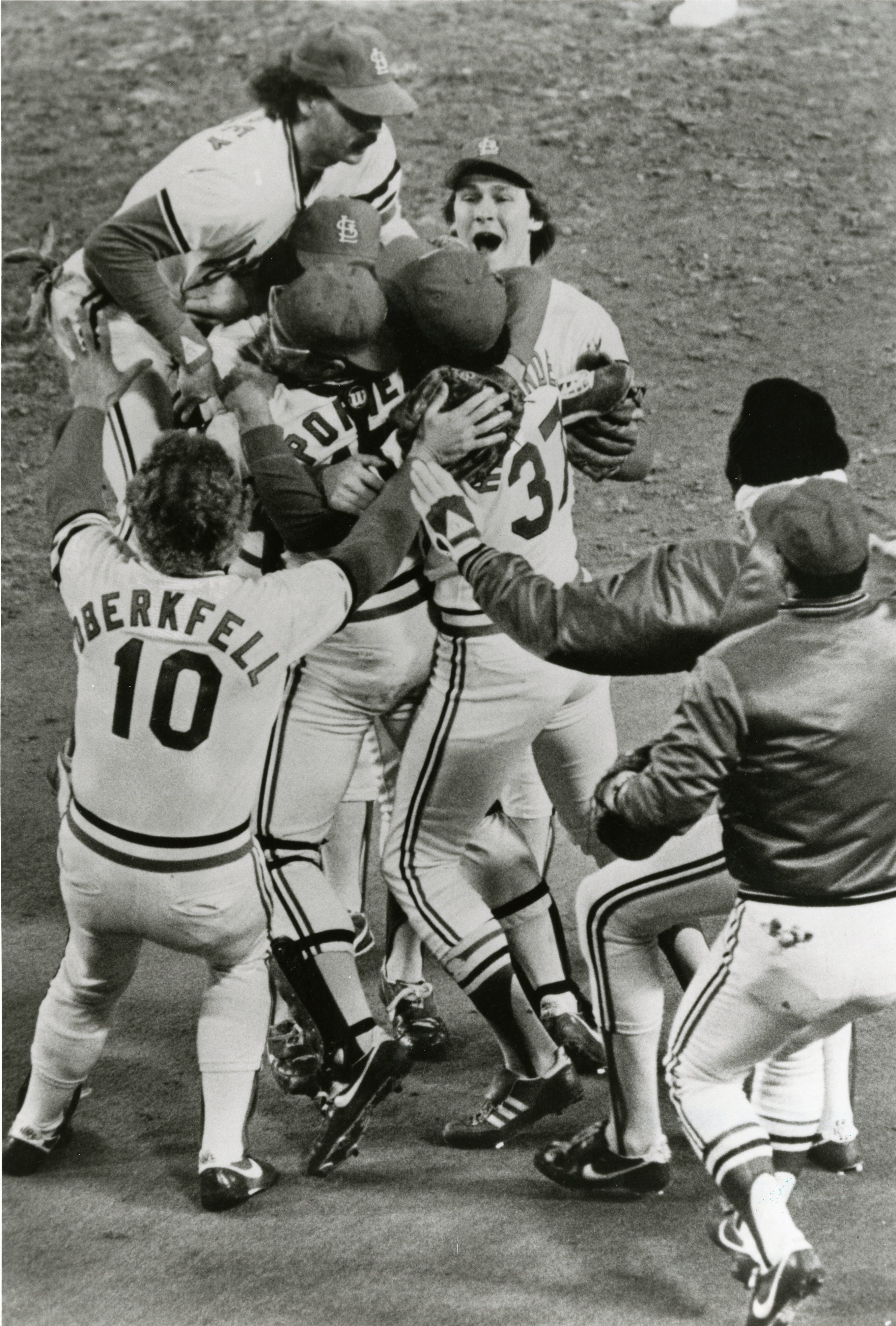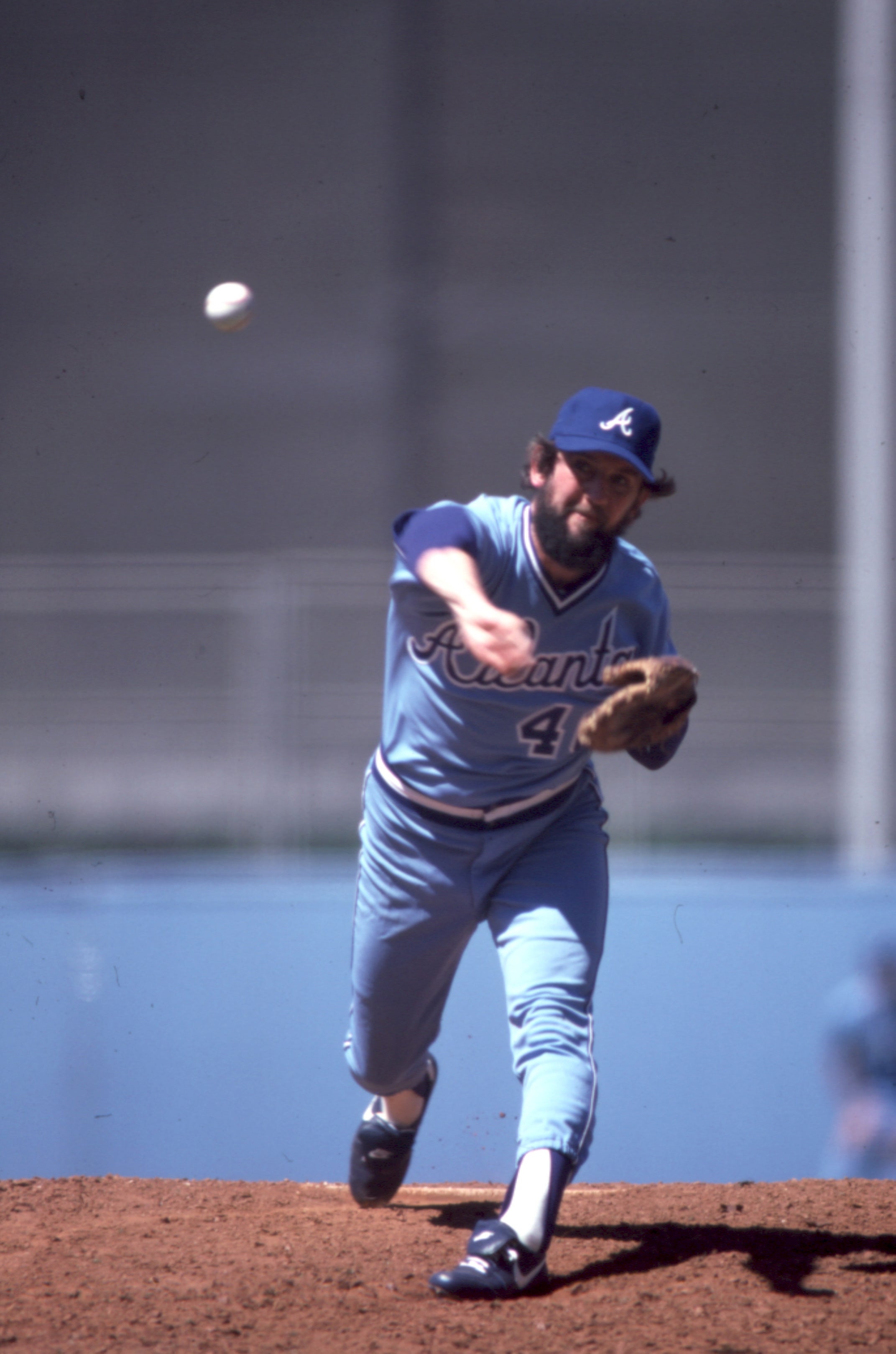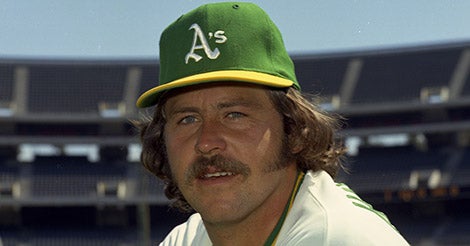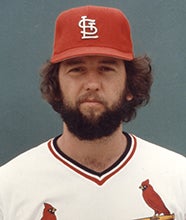- Home
- Our Stories
- Sutter’s Cy Young Award completes incredible comeback
Sutter’s Cy Young Award completes incredible comeback
He was a 21st-round draft pick by the Washington Senators in 1970 who didn’t even play a full minor league season until 1973.
Bruce Sutter’s pro baseball career seemed to be over before it even started. But after mastering a pitch that became known as the split-fingered fastball, Sutter became one of the best pitchers in the game.
Hall of Fame Membership
There is no simpler, and more essential, way to demonstrate your support than to sign on as a Museum Member.
On Nov. 7, 1979, Sutter was named the winner of the National League Cy Young Award. The Cubs’ ace, who saved a big league-best 37 games that season, became the second NL reliever – and the third overall – to win a Cy Young Award. His 37 saves tied for the top total in NL history at that time, one behind the MLB record of 38 set by the Tigers’ John Hiller in 1973.
Sutter, who was 6-6 with a 2.22 ERA in 62 games, edged the Astros’ Joe Niekro in the voting 72-66. Sutter received 10 first-place votes compared to nine for Niekro, who went 21-11 with a 3.00 ERA.
“I was shocked. I really thought Joe Niekro would get it,” Sutter told the Associated Press. “When you win an award like this it’s not really one man, but the entire team.”
A fastball pitcher as an amateur, Sutter was unable to sign with the Senators in 1970 because he had not yet graduated from high school. He pitched on semi-pro teams around his home in Lancaster, Pa., before the Cubs signed him as an amateur free agent on Sept. 9, 1971.
An arm injury, however, nearly ended Sutter’s career. When he reported to Spring Training in 1973, Sutter’s fastball no longer had its former speed.
But coach Fred Martin taught Sutter the splitter, which imparts forward spin on a traditional fastball, causing it to drop when it approaches home plate.
By 1976, Sutter had made the big leagues – going 6-3 with a 2.70 ERA in 52 games.
“The next relief pitcher to win the Cy Young Award,” said Darold Knowles during Spring Training of 1977, “will be this guy from Chicago.”
In 1977, Sutter saved 31 games, going 7-3 with a 1.34 ERA and 129 strikeouts in 107.1 innings.
“Trying to hit Bruce Sutter,” Pirates catcher Ed Ott told United Press International, “is like trying to hit a marble rolling off a table at 95 miles per hour.”
Sutter was the game’s premier closer from 1977-84, leading the NL in saves five times during that stretch. From 1978-81, Sutter won or saved the All-Star Game for the NL each season.
In 12 big league seasons with the Cubs, Cardinals and Braves, Sutter saved 300 games, was named to six All-Star Games and finished in the Top 5 of the NL Cy Young Award voting four times – including his first-place finish in 1979.
“I’ve seen forkballs before,” said NL umpire Dick Stello, “but not like this. I think it’s just a fastball that sinks two feet.”
Sutter was elected to the Hall of Fame in 2006.
Craig Muder is the director of communications for the National Baseball Hall of Fame and Museum
Related Stories

Bruce Sutter wraps up Game 7 of the 1982 World Series

Sutter’s final save made history

Catfish Hunter wins 1974 AL Cy Young Award

Gaylord Perry's super '72 results in AL Cy Young Award

Bruce Sutter wraps up Game 7 of the 1982 World Series

Sutter’s final save made history

Catfish Hunter wins 1974 AL Cy Young Award



